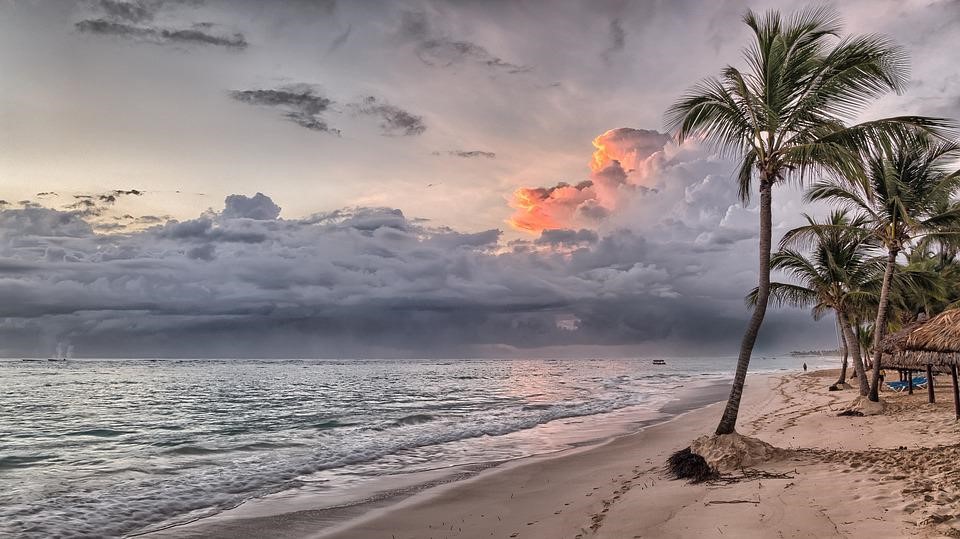The principle of “indivisibility” is critical to American citizens. It is written into our Pledge of Allegiance and enounces that although we may come from many places, no one can pull us apart. Chinese President Xi Jinping used this concept in past years to refer to his country’s relations with Russia and Ukraine, calling their ties “indivisible.” He expanded it in his April 21, 2022, speech, when for the first time he applied the idea beyond the framework of relations with those two states. While speaking at a virtual foreign minister’s meeting of the nine Caribbean states maintaining diplomatic relations with Beijing, Xi proposed a “global security initiative” to uphold the principle of “indivisible security.” According to the Jamestown Foundation, this is the first time China has argued for “indivisible security” outside of the Russia-Ukraine context. It may represent the opening of a new front in China’s attempt to remake the world order in its favor.
Caribbean states are crucial to China’s commercial access to the Atlantic coast of the US and South America. Over 6 percent of global maritime trade passes through the Canal. Last year Hutchison Balboa, a Chinese owned company, received a 25-year extension on its contract to administer the ports on either end of the Panama Canal despite some opposition due to its ownership. Evan Ellis, in a Wilson Center report, notes that the Caribbean “sits between multiple US military and commercial logistics hubs and potential destinations in the Americas, Africa and Europe,” making it an important waterway for China and a flashpoint for US-China competition. Cargo traveling to and from China composes about 13% of the canal’s annual traffic. Daniel Runde, of the Center for Strategic and International Studies, points out that “China’s influence in the Panama Canal has only grown since 2017 when then-president [of Panama] Carlos Varela severed diplomatic ties with Taiwan and recognized China, further opening the door to China’s expanded footprint in critical Canal infrastructure and laying the groundwork for alignment with the Belt and Road Initiative (BRI).”
The Caribbean region provides China with one-third of its food imports, lithium for batteries, and other critical products. As China’s commercial interest in the Caribbean grows, so does American security concerns over the potential of China building a permanent naval base in the area. As in many developing areas of the world, China is financing infrastructure projects that in the Caribbean total more than $7 billion in loans and investments in six Caribbean countries since 2005. Two years ago, China Merchants Port Holdings acquired the Kingston, Jamaica, container port and committed to invest $2.7 billion to improve it.
During a 2019 trip to China, Prime Minister Andrew Holiness, and his Jamaica Labor Party (JLP), claimed to have played a key role in China’s significant expansion in the country and to have created the closest ties ever between the two countries. The narrative is similar in the Bahamas where the Chinese firm Hutchison operates the Freeport container port. “In Trinidad and Tobago, China Harbor, which has multiple projects in the country, has proposed a $500 million regional drydock facility in La Brea, while a consortium of Chinese investors has promised a $102 million industrial park to be populated by Chinese companies,” according to Ellis. In Suriname, the Chinese Greenheart Company owns a significant portion of the nation’s timberlands. The Dominican Republic broke relations with Taiwan in 2018 when China promised it $3 billion in credits and investments. In Guyana, the Chinese oil company CNOOC has a 25 percent interest in the Exxon-Mobil-led consortium that controls over 6 million barrels of recoverable oil. The narrative of expanding Chinese investments is similar across the region.
As US-China competition intensifies, Beijing is further opening its pocketbook throughout the Caribbean to convince them it simply wants to “benignly aid” the region by building port facilities, mines, airports, and other infrastructure projects. The area also is becoming a key battleground for China in its struggle to isolate Taiwan from its remaining ties by permanently creating “indivisible” links to the island countries just south of the United States. “China and/or its partner nations in Latin America and the Caribbean could construe just about any US defense policy or military action, from budgets to aid to exercises, as a violation of indivisible security and whatever agreements emerge from [China’s] Global Security Initiative,” according to the Jamestown Foundation’s Stealth War newsletter. It is beginning to appear that a new and dangerous front may be opening in China’s struggle for future leadership of the global world order right in our backyard.
Daria Novak served in the U.S. State Department
